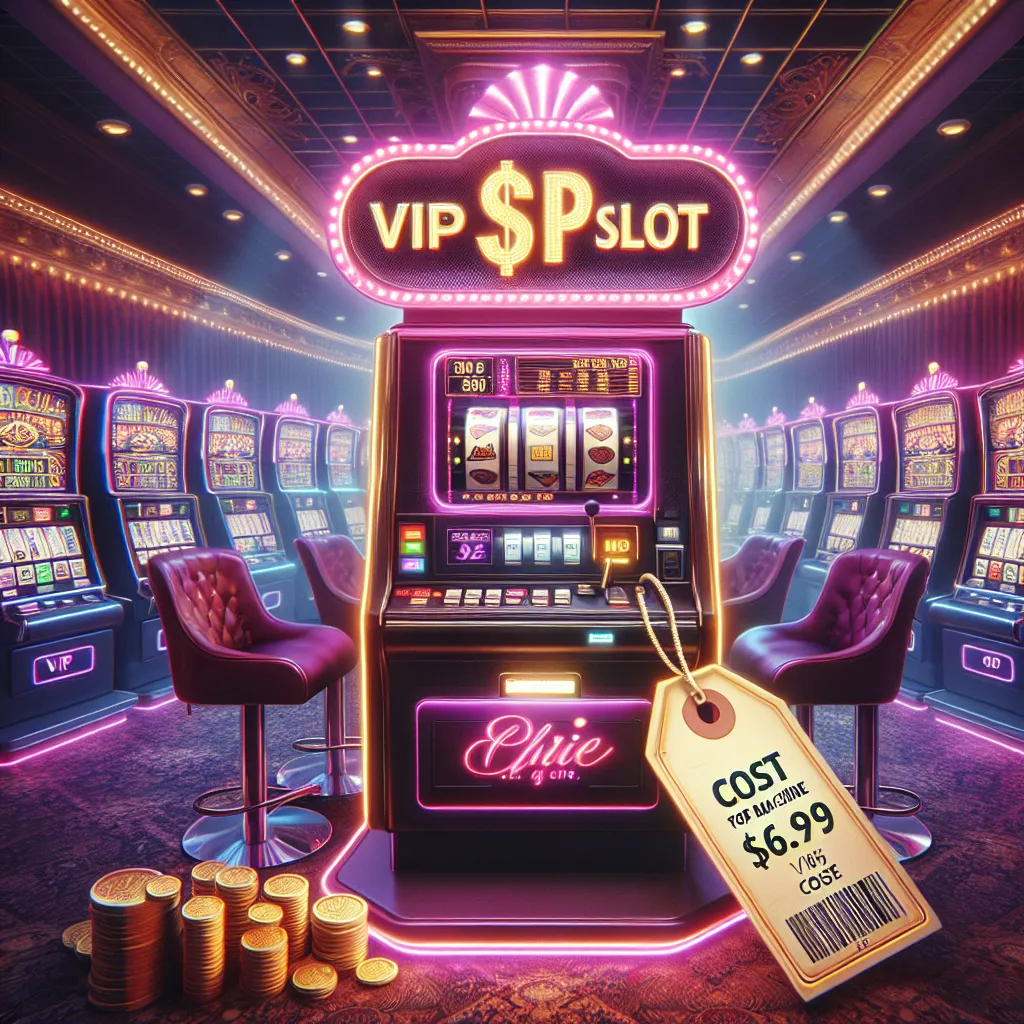In the realm of casino gaming, slot machines hold an undeniable allure. These iconic machines not only dominate the casino floor but also account for a substantial portion of the industry’s revenue. While players often focus on the thrill of winning, the behind-the-scenes economics of slot machines is a fascinating topic. This article delves into the world of VIP slots, as well as the costs associated with acquiring a slot machine and what casinos typically pay to keep their floors buzzing with these enticing devices.
VIP slots represent a premium category within the larger array of slot machines. These slots are designed to provide an elevated gaming experience, catering to high rollers and players seeking exclusivity and enhanced rewards. VIP slots often feature lavish themes, high-definition graphics, and interactive elements, ensuring they stand out on the casino floor. Players flock to VIP slots not only for the unique experience they offer but also for the potential of high-stakes rewards and personalized customer service. Casinos use VIP slots to attract and retain valuable clientele, offering an experience that goes beyond the standard gaming encounter.
The journey of a slot machine from conception to the casino floor is an intricate and costly process. Developing a slot machine involves collaboration between game designers, mathematicians, and software developers. The cost of designing and manufacturing a single slot machine can range from $10,000 to $25,000 or more, depending on its complexity and the technology involved. Factors such as video graphics, bonus features, and interactive capabilities contribute significantly to the overall cost. For instance, a basic reel machine with minimal graphics might be on the lower end of the scale, whereas a themed video slot with an intricate storyline and additional features would fall on the higher end.
Once developed, the cost of purchasing a slot machine for a casino adds another layer of financial consideration. Casinos typically face a decision between outright purchase and lease agreements. The purchasing price for a single slot machine averages between $15,000 and $30,000. However, prices can soar to $100,000 or more for advanced machines that offer cutting-edge technology and exclusive features. High-end machines in the VIP category are often custom-designed, adding another premium to their price tag.
Alternatively, many casinos opt to lease slot machines from manufacturers. Leasing can be an advantageous option for casinos that wish to frequently update their gaming floor without the substantial upfront outlays that purchasing requires. Lease agreements can range from a few hundred to several thousand dollars per month per machine, often including maintenance and support services. This arrangement allows casinos to rotate new games regularly and keep their offering fresh without incurring high capital expenditures.
For casinos, investing in slot machines is a strategic decision influenced by several factors, including expected return on investment and player demand. Casinos analyze market trends and player preferences to determine which machines to acquire, considering both the cost and potential profitability. More advanced or themed machines might attract a larger player base, subsequently increasing revenue despite their higher initial cost.
The revenue generated from slot machines significantly outweighs their acquisition costs, making them a lucrative investment for casinos. Each machine can bring in anywhere from $50 to $300 per day on average, depending on its popularity and location within the casino. VIP slots, due to their higher betting limits and exclusivity, often generate more substantial daily revenue. They not only enhance the casino’s brand as a destination for luxury gaming but also draw a clientele willing to spend more, thus amplifying returns.
Understanding the financial dynamics behind slot machines reveals the careful planning and substantial investments casinos make to create an alluring gaming environment. Slot machines, especially VIP slots, are tailored to provide maximum entertainment and profitability. By balancing the costs of acquisition and the anticipated revenue, casinos ensure they make informed decisions that bolster their financial success.
In conclusion, the world of slot machines is as multifaceted as it is fascinating. From the creation and acquisition costs to the allure of VIP experiences, slot machines play a crucial role in the casino industry’s economic fabric. As gaming technology advances and player expectations evolve, the dynamics of slot machine economics will continue to intrigue industry enthusiasts and casual players alike who wish to understand what goes into creating their favorite slots experience.




